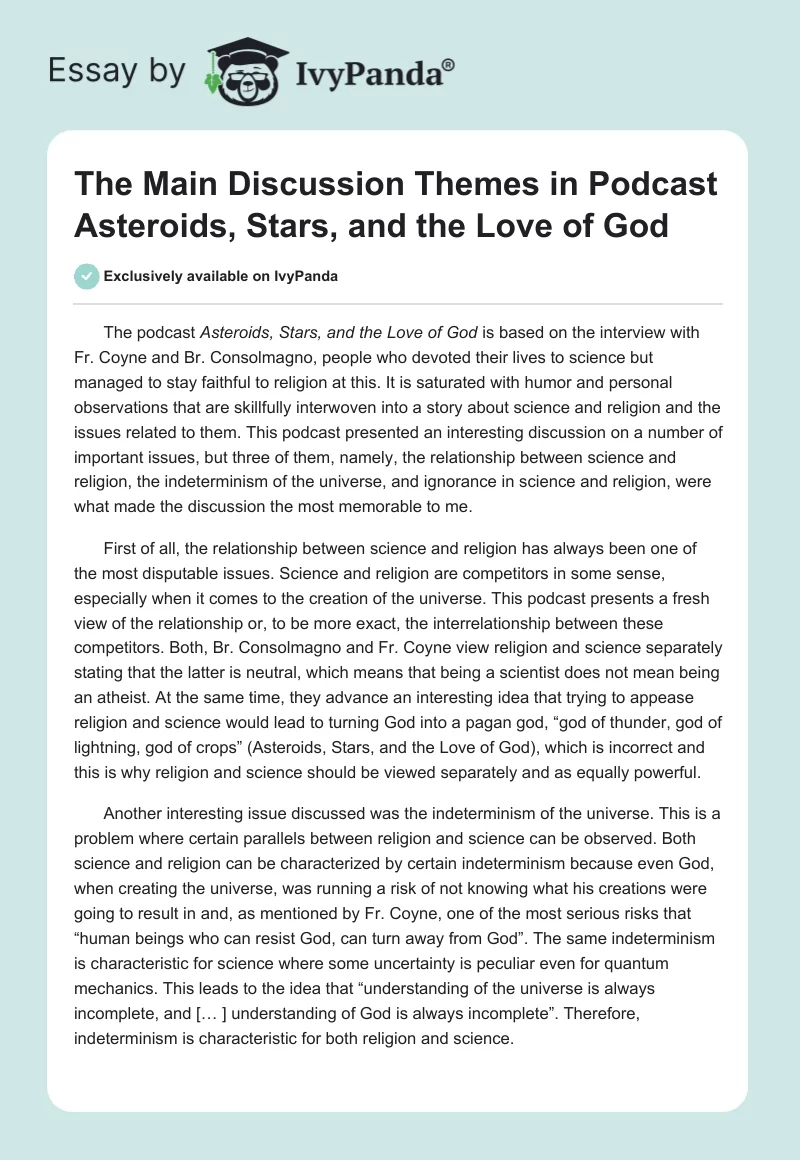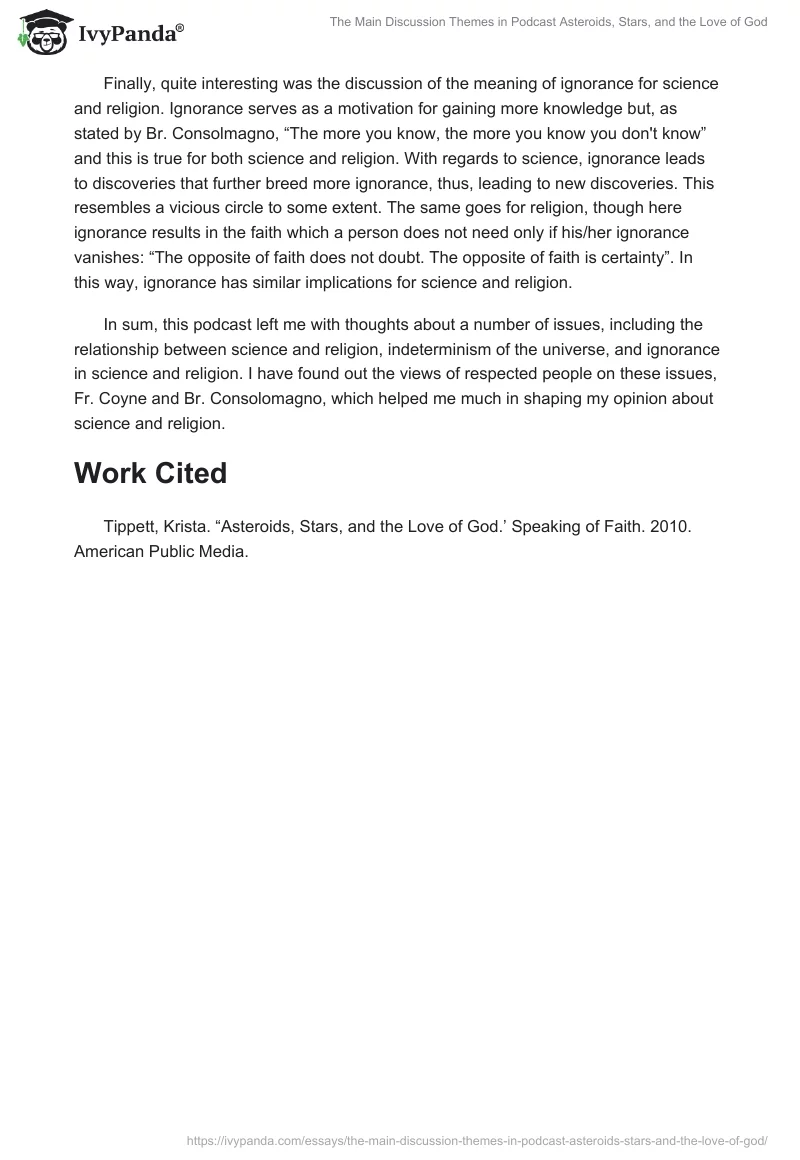The podcast Asteroids, Stars, and the Love of God is based on the interview with Fr. Coyne and Br. Consolmagno, people who devoted their lives to science but managed to stay faithful to religion at this. It is saturated with humor and personal observations that are skillfully interwoven into a story about science and religion and the issues related to them. This podcast presented an interesting discussion on a number of important issues, but three of them, namely, the relationship between science and religion, the indeterminism of the universe, and ignorance in science and religion, were what made the discussion the most memorable to me.
First of all, the relationship between science and religion has always been one of the most disputable issues. Science and religion are competitors in some sense, especially when it comes to the creation of the universe. This podcast presents a fresh view of the relationship or, to be more exact, the interrelationship between these competitors. Both, Br. Consolmagno and Fr. Coyne view religion and science separately stating that the latter is neutral, which means that being a scientist does not mean being an atheist. At the same time, they advance an interesting idea that trying to appease religion and science would lead to turning God into a pagan god, “god of thunder, god of lightning, god of crops” (Asteroids, Stars, and the Love of God), which is incorrect and this is why religion and science should be viewed separately and as equally powerful.
Another interesting issue discussed was the indeterminism of the universe. This is a problem where certain parallels between religion and science can be observed. Both science and religion can be characterized by certain indeterminism because even God, when creating the universe, was running a risk of not knowing what his creations were going to result in and, as mentioned by Fr. Coyne, one of the most serious risks that “human beings who can resist God, can turn away from God”. The same indeterminism is characteristic for science where some uncertainty is peculiar even for quantum mechanics. This leads to the idea that “understanding of the universe is always incomplete, and [… ] understanding of God is always incomplete”. Therefore, indeterminism is characteristic for both religion and science.
Finally, quite interesting was the discussion of the meaning of ignorance for science and religion. Ignorance serves as a motivation for gaining more knowledge but, as stated by Br. Consolmagno, “The more you know, the more you know you don’t know” and this is true for both science and religion. With regards to science, ignorance leads to discoveries that further breed more ignorance, thus, leading to new discoveries. This resembles a vicious circle to some extent. The same goes for religion, though here ignorance results in the faith which a person does not need only if his/her ignorance vanishes: “The opposite of faith does not doubt. The opposite of faith is certainty”. In this way, ignorance has similar implications for science and religion.
In sum, this podcast left me with thoughts about a number of issues, including the relationship between science and religion, indeterminism of the universe, and ignorance in science and religion. I have found out the views of respected people on these issues, Fr. Coyne and Br. Consolomagno, which helped me much in shaping my opinion about science and religion.
Work Cited
Tippett, Krista. “Asteroids, Stars, and the Love of God.’ Speaking of Faith. 2010. American Public Media.


